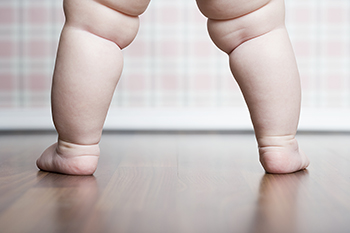Latest News Archive
Please select Category, Year, and then Month to display items
03 October 2024
|
Story Ansie Barnard
|
Photo Supplied
 From left to right: Londeka Mkhwanazi, Semither Mkhize, Salima van Schalkwyk, Slindokuhle Ndlovu, Asanda Mpinga, Mantombi Molefe, Ntombinkulu Khumalo, Mosebjadi Chauke and Thembinkosi Mkhwanazi.
From left to right: Londeka Mkhwanazi, Semither Mkhize, Salima van Schalkwyk, Slindokuhle Ndlovu, Asanda Mpinga, Mantombi Molefe, Ntombinkulu Khumalo, Mosebjadi Chauke and Thembinkosi Mkhwanazi.
The Amrut Foundation, in partnership with the University of the Free State (UFS), successfully hosted its Inaugural Innovathon at the UFS Qwaqwa Campus. This competition is designed to identify and support innovative products and services that not only generate profit but also contribute to the public good, with a strong emphasis on ethical business practices. Through this collaboration, students gain national exposure for their businesses and receive support to create sustainable social enterprises.
Five teams of student social entrepreneurs from the Qwaqwa campus were shortlisted to participate in the regional finals. Their selection was based on ventures that adhered to a social entrepreneurship model and demonstrated plans for long-term profitability and sustainability.
During the Innovathon, a panel of judges from the UFS, the Amrut Foundation, and the Small Enterprise Development Agency (SEDA) selected two outstanding teams to represent the UFS at the national finals, which will take place in October. The winning ventures, Biofly-Pro and Root Rescue were each awarded R20,000 to further develop and expand their initiatives.
Hemang Desai, Executive Director of the Amrut Foundation, expressed his enthusiasm for the event: "Amrut is proud to co-host the Free State leg of the inaugural Innovation Challenge with the UFS. Supporting students with entrepreneurial ambitions that align with societal care is one of our key focus areas."
Dr Grey Magaiza, Senior Lecturer and Deputy Director for the Centre for Gender and Africa Studies at the UFS, highlighted the importance of social entrepreneurship: “Social entrepreneurship is a collaborative effort towards creating sustainable and ethical business processes. The two winning projects embody these principles, and we look forward to their continued growth. In line with our Vision 130, social entrepreneurship can serve as a critical lever for university-community engagement.”
Congratulations to Biofly-Pro and Root Rescue on their well-deserved achievements!
Childhood obesity should be curbed early
2017-03-15

Serious intervention by parents is required to deal
with childhood obesity. Prof Louise van den Berg and
a group of final-year PhD students worked on a study
about the prevalence of obesity in six-year-olds in
South Africa.
Photo: Supplied
If your child is overweight when they start school at the age of six, unless you do something about it at that point, the indications are they are going to be overweight teenagers and obese adults. This is according to University of the Free State’s Prof Louise van den Berg.
Evidence has shown that overweight children and teenagers have a greater risk of developing lifestyle diseases such as type 2 diabetes, hypertension and cardiovascular disease later in life, and dying prematurely.
Obesity is a global pandemic rapidly spreading among adults and children, in developed and developing countries alike.
Dr Van den Berg worked with Keagan Di Ascenzo, Maryke Ferreira, Monja-Marie Kok, Anneke Lauwrens, all PhD students with the Department of Nutrition and Dietetics, to conduct the study. Their research found that children who are overweight by the time they turn six should be screened for weight problems.
Why six-year-olds?
Children who are overweight between the ages of two and five are five times more likely to be overweight when they are 12. There are two periods in a normal life cycle when the body makes new fat cells. The first is in the uterus and the second is around the age of six. The second phase lasts from the age of six to puberty.
The study assessed the prevalence of obesity in six-year-olds as part of a campaign in South Africa to raise awareness of the problem among parents and educators.
A total of 99 children were chosen from seven schools in Mangaung, the capital city of Free State. The schools were chosen from quintile four and five schools, which when measured by their own resources and economic circumstances, are well resourced and serve largely middle-class and wealthy communities.
The children’s weight, height and waist circumference were measured and used to calculate a body mass index score and waist-to-height ratio. Both these figures are good predictors for future lifestyle disease risks such as type 2 diabetes, hypertension and cardiovascular disease. A person with a good waist-to-height ratio can wrap a piece of string equal to their height around their waist at least twice.
When the children had a higher body mass index, they also had an increased waist to height ratio. The study found one in four children from the schools surveyed were overweight when they started primary school.
Nipping the fat in the bud
Although there are many factors that play a role in preventing childhood obesity, parents’ perceptions of their children’s weight play an important role. A recent study found that more than 50% of parents underestimate the weight of their obese children. These parents remain unaware of the risks their children face and are not motivated to take any action.
At least half of the parents whose children are overweight struggle to recognise their children’s weight problems fearing that they will be labelled or stigmatised. By the time they turn six overweight children should be referred to dieticians and nutritionists who are qualified to guide their parents in getting them to eat well and be more physically active at pre-primary and primary school.
The high prevalence of weight problems among six-year-olds found in this study is an urgent call to healthcare professionals to step up and empower parents, educators and children with the necessary skills for healthy dietary practices and adequate physical activity.